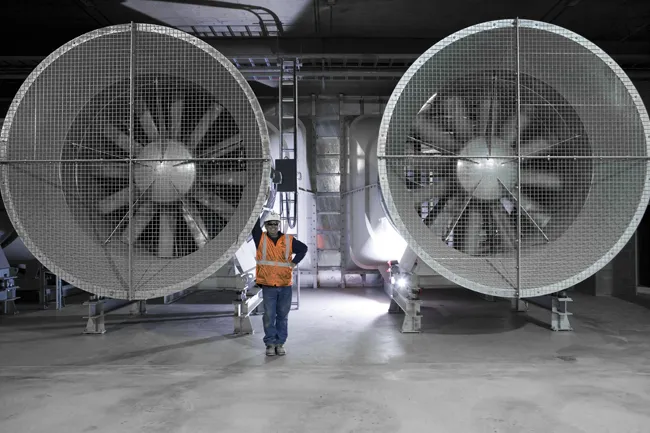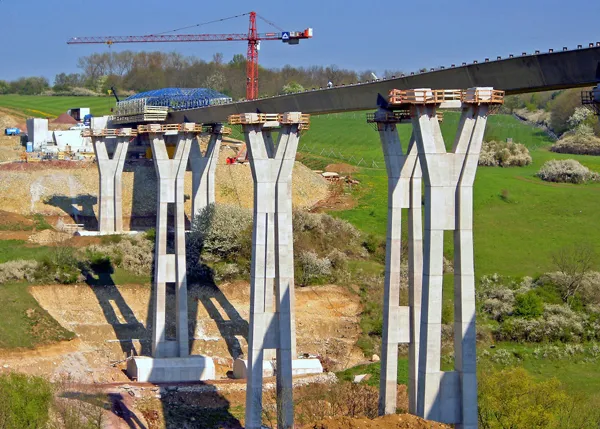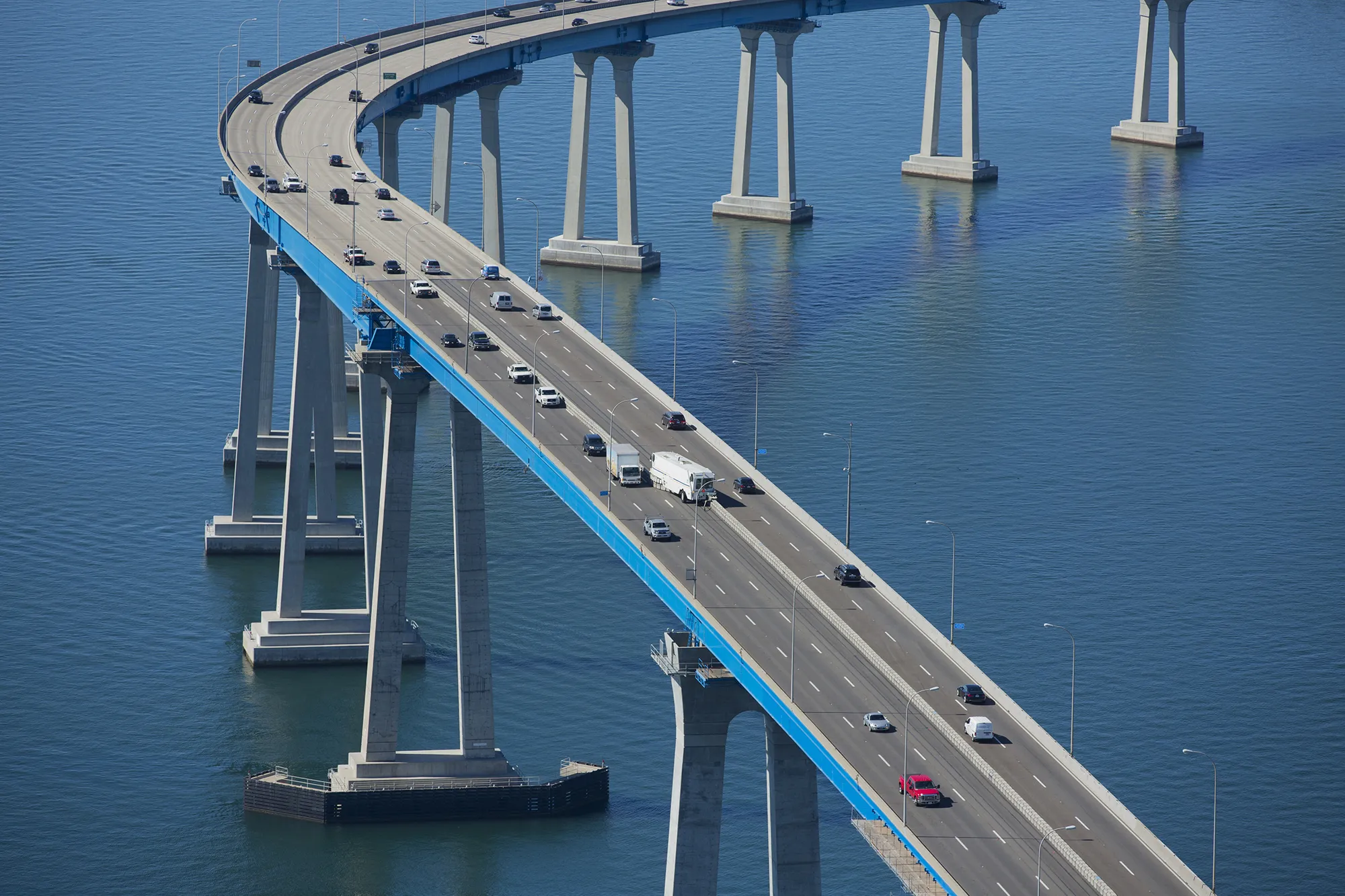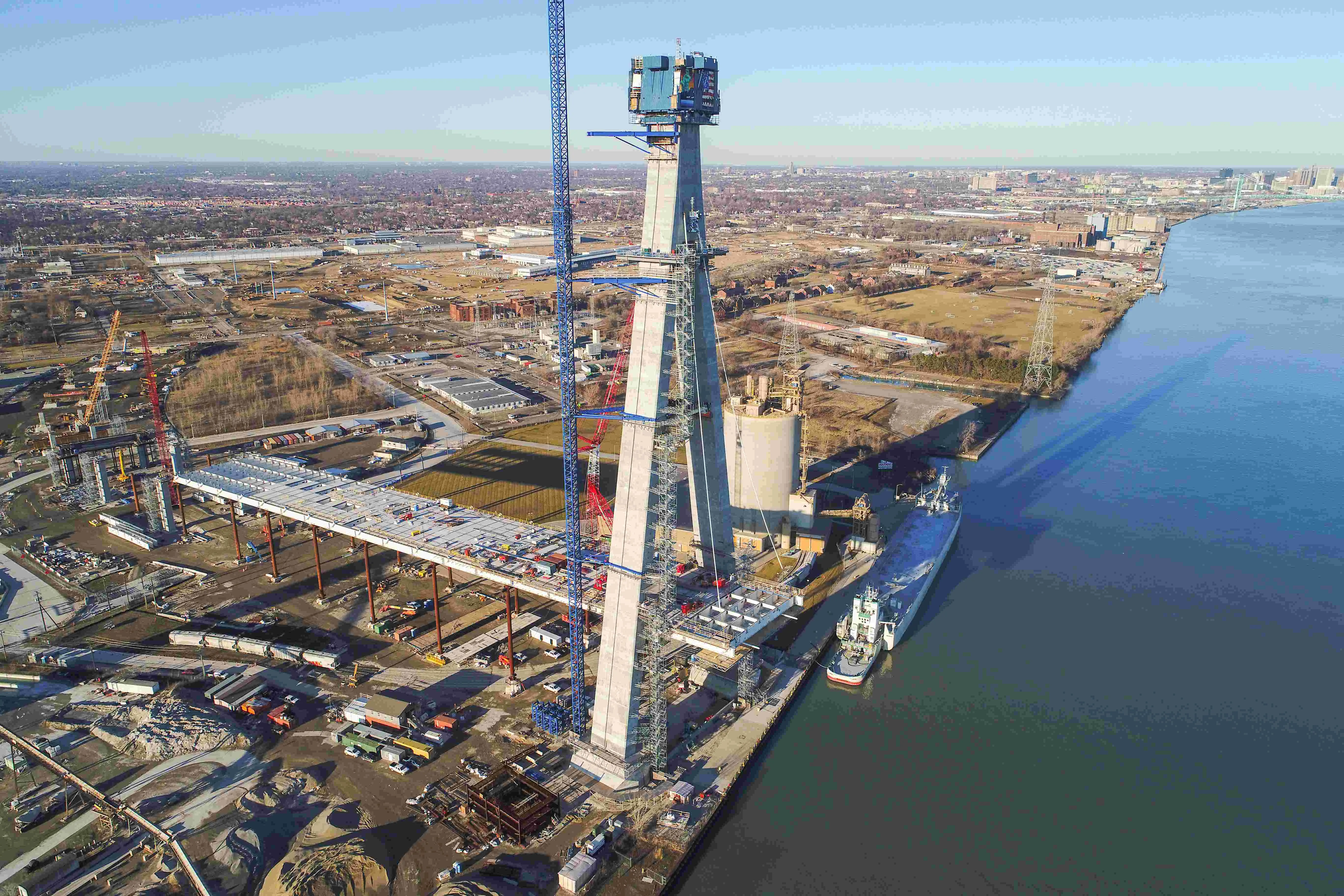Acrow Bridge has supplied a long-term temporary modular bridge to main contractor KPH Turcot for its work on the Turcot Interchange reconstruction in Montréal, Canada.
The 32.3m-long Turcot modular steel bridge - Acrow’s longest clear span bridge in Canada – is 5m wide and has an orthotropic deck. The rented Acrow components arrived on site late last year and the bridge was opened to traffic in December. It is expected to be in place for two years.
The Turcot Interchange is a three-level stack freeway int
June 28, 2018
Read time: 2 mins
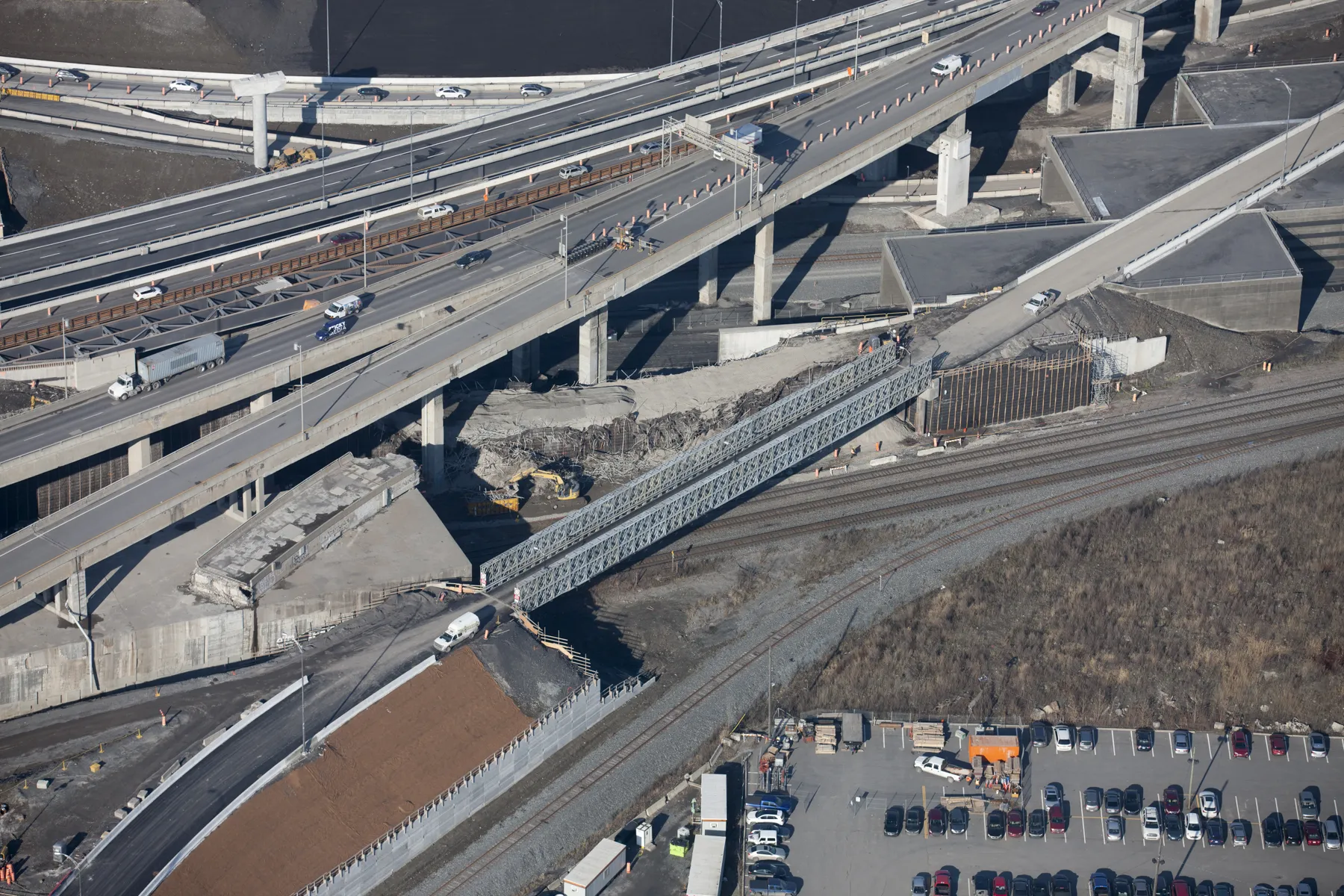
Acrow Bridge has supplied a long-term temporary modular bridge to main contractor KPH Turcot for its work on the Turcot Interchange reconstruction in Montréal, Canada.
The 32.3m-long Turcot modular steel bridge - Acrow’s longest clear span bridge in Canada – is 5m wide and has an orthotropic deck. The rented Acrow components arrived on site late last year and the bridge was opened to traffic in December. It is expected to be in place for two years.
The Turcot Interchange is a three-level stack freeway interchange and the largest in the province of Québec. It is heavily travelled and carries an estimated 300,000 vehicles per day.
Because it is located in a high density residential and commercial area and links the Montréal-Pierre Elliott Trudeau International Airport with downtown Montréal, it is critical that traffic flow be maintained throughout the project.
Due to site restrictions, it was impossible to install the bridge using a crane. Instead, a full cantilever was designed using a 48.7m launching nose. The installer used pre-manufactured 3m sections and launched in sequence.
Acrow’s structure will allow vehicles to travel from northbound Autoroute 15 to westbound Autoroute 20 and keep workers safe, said Benoit Forget, Acrow’s regional director for Québec and New Brunswick provinces.
KPH Turcot - a partnership of Construction Kiewit and Parsons Canada, WSP Canada and Holcim Canada – won the design-build contract for the Turcot Interchange.
The overall US$2.9 billion Turcot programme is the largest in the Quebec province’s ministry of transport history. KPH Turcot’s design-build contract is the largest value portion of the programme.
When completed, the carbon-neutral project will provide 6.7km of multiuse trails, reduced maintenance costs as well as improved links between neighbourhoods. Also included will be more than 30hectares of green space and lower noise levels for nearby residents.
Also as part of the project, 145-lane-kilometres of roadways will be designed and constructed while Canadian National Railway mainline tracks will be relocated. Completion is set for 2020.
The 32.3m-long Turcot modular steel bridge - Acrow’s longest clear span bridge in Canada – is 5m wide and has an orthotropic deck. The rented Acrow components arrived on site late last year and the bridge was opened to traffic in December. It is expected to be in place for two years.
The Turcot Interchange is a three-level stack freeway interchange and the largest in the province of Québec. It is heavily travelled and carries an estimated 300,000 vehicles per day.
Because it is located in a high density residential and commercial area and links the Montréal-Pierre Elliott Trudeau International Airport with downtown Montréal, it is critical that traffic flow be maintained throughout the project.
Due to site restrictions, it was impossible to install the bridge using a crane. Instead, a full cantilever was designed using a 48.7m launching nose. The installer used pre-manufactured 3m sections and launched in sequence.
Acrow’s structure will allow vehicles to travel from northbound Autoroute 15 to westbound Autoroute 20 and keep workers safe, said Benoit Forget, Acrow’s regional director for Québec and New Brunswick provinces.
KPH Turcot - a partnership of Construction Kiewit and Parsons Canada, WSP Canada and Holcim Canada – won the design-build contract for the Turcot Interchange.
The overall US$2.9 billion Turcot programme is the largest in the Quebec province’s ministry of transport history. KPH Turcot’s design-build contract is the largest value portion of the programme.
When completed, the carbon-neutral project will provide 6.7km of multiuse trails, reduced maintenance costs as well as improved links between neighbourhoods. Also included will be more than 30hectares of green space and lower noise levels for nearby residents.
Also as part of the project, 145-lane-kilometres of roadways will be designed and constructed while Canadian National Railway mainline tracks will be relocated. Completion is set for 2020.


